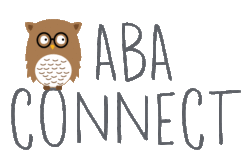How Do BCBAs Individualize Treatment for My Child?
If you’ve received or looked into receiving ABA treatment for your family, it’s likely that you’ve read about individualization of care. The term “individualized” is used frequently in the field of applied behavior analysis, and refers to how Board Certified Behavior Analysts (BCBAs) tailor treatment to their client’s needs and the needs of their families.
The role of a BCBA is to find the most impactful, evidence-based treatment tools for their clients that will create meaningful outcomes and produce lasting change. The range of tools used to create individualized interventions needs to be broad enough to meet every learner’s need. Finding behavior analysts who possess the training and knowledge of such a variety of tools is unfortunately rare.
Nearly all ABA clinics offer treatment plans based on two major criterion-referenced assessments: the ABLLS-R (Assessment of Basic Language and Learning Skills- Revised) and the VB MAPP (Verbal Behavior Milestones Assessment and Placement Program). ABA Connect’s services are unique in that their treatment plans pull from a wider variety of resources and tools than most clinics typically offer. This is largely due to their history with the community and the ranging abilities of analysts that provide services with the clinic. Below are descriptions of the assessments and curricula available as part of ABA Connect’s treatment.
Essential for Living:
Essential for Living (ESL) is an assessment and curriculum created for the needs of learners with moderate to severe special needs. It specializes in daily living/adaptive skills, fluent requesting, and community–based skills. The creator of Essential for Living, Pat McGreevy, created this criterion-based assessment and curriculum with the mission of ensuring all learners with moderate to severe special needs possess the abilities to live with the dignity they deserve. Learners who have access to Essential for Living will likely be practicing requesting, tolerating the removal of preferred items, waiting, tolerating medical routines, and daily hygiene/eating routines.
Socially Savvy:
Socially Savvy is a social skills assessment and curriculum created by BCBAs with the purpose of teaching subtle, nuanced social behaviors to learners on the autism spectrum. Creating and maintaining relationships, perspective taking, practicing fluid language use, and social problem solving are all part of treatment with this teaching tool. Learners who already demonstrate some back-and-forth conversational skills are a good fit for Socially Savvy.
PEAK Relational Training System:
PEAK is touted as being the “next generation” of ABA curricula. It includes nearly every skill and lesson taught within the VB MAPP and ABLLS-R (discussed above), but the bulk of its programming involves using receptive and expressive language to derive relations. The creators of PEAK have produced copious amounts of research that examine and support its effectiveness. They explain that the curriculum involves “learning how to learn” instead of memorizing correct answers. The PEAK Comprehensive Assessment evaluates a learner’s ability to relate concepts in the six major Frames of Relation, and is the only standardized assessment in the field of ABA.
As discussed, the VB MAPP and ABLLS-R assessments are regularly utilized by ABA Connect’s staff. These criterion-referenced assessments have been commonly used in the field for over a decade, and behavior analysts are typically well versed in these two tools. The staff at ABA Connect have spent the time and energy needed for additional training on more comprehensive tools to ensure clients receive the Gold-Standard in individualized care.
If your family is seeking a treatment that is tailored just to your needs, reach out to ABA Connect to learn more about getting started!




Leave a Reply
Want to join the discussion?Feel free to contribute!